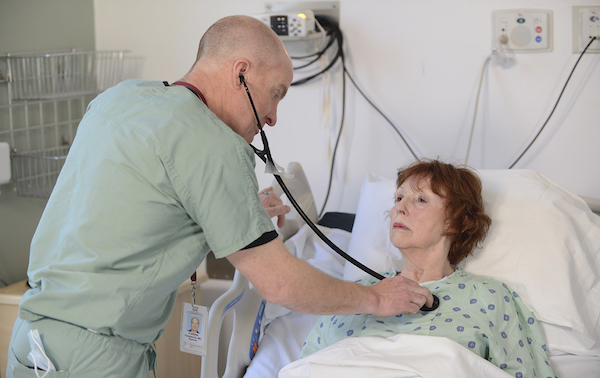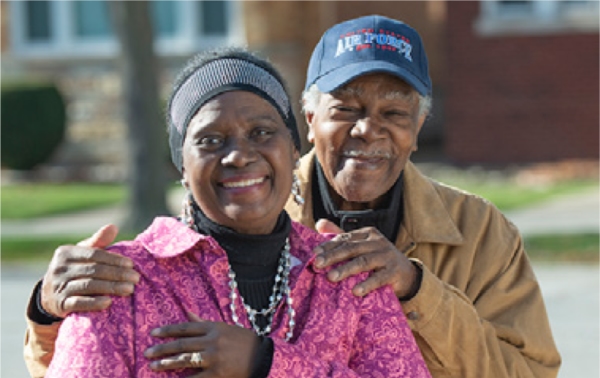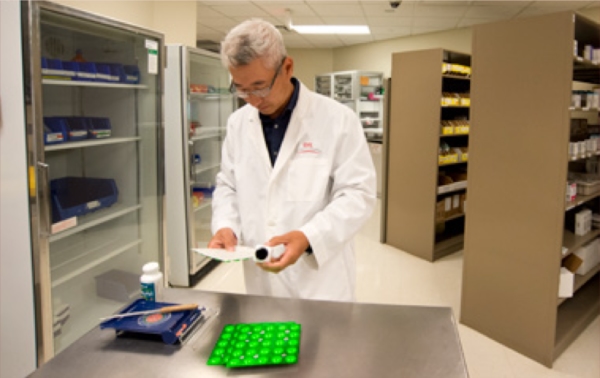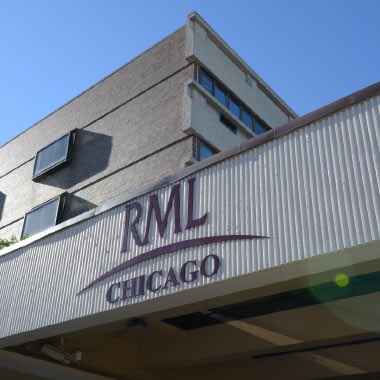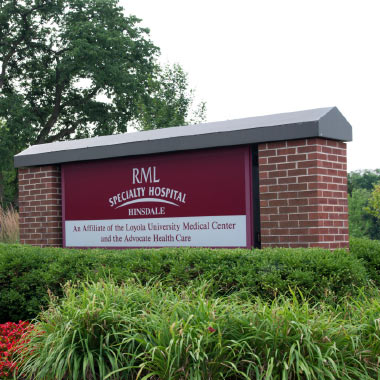Research
Improving the quality of life for our patients doesn’t end with treatment. It extends to clinical research, particularly in the area of safe and effective ventilator weaning.
Research helps to uncover the root causes of conditions, determine alternative treatments, and improve patient outcomes. At RML, we take our responsibility in this area very seriously.
We are working hard to investigate innovative ways to wean patients from ventilators, identify the most effective treatment methods for patients with multiple complex medical conditions, and apply the latest technology to ease pain.
RML is particularly well known for its leadership in ventilator weaning. RML conducted the largest known study of ventilator patients over a 10-year period of time. The findings analyzing the outcomes of prolonged ventilation were recently published in the Journal of the American Medical Association.
Research Studies at RML

Effect of Pressure Support vs Unassisted Breathing Through a Tracheostomy Collar on Weaning Duration in Patients Requiring Prolonged Mechanical Ventilation, the largest ventilator study of its kind, was published in the Journal of the American Medical Association. It was led by Amal Jubran, MD.
The research compared the outcomes of weaning methods for patients from prolonged mechanical ventilation (greater than 21 days on a ventilator), concluding that unassisted breathing through a tracheostomy, compared with pressure support, resulted in shorter time to wean patients off the ventilator.
A shorter weaning time reduces patients’ length of stay and lowers costs. This is especially important given that patients requiring prolonged mechanical ventilation account for more than 13 percent of ventilated patients and 37 percent of intensive care unit (ICU) costs nationally. The number of ICU patients transferred for weaning to LTCHs like RML is expected to increase substantially in coming years and will cost billions of dollars. RML has incorporated the important findings of this study into its ventilator-weaning protocol for improved efficiency and effectiveness.
RML summarizes a range of studies looking at the quality of life during ventilator use and weaning in this document: Long-Term Outcome and Functional Status of Patients Weaned from Prolonged Mechanical Ventilation
Topics include:
- The effect of prolonged mechanical ventilation on quality of life
- Handgrip strength and maximum inspiratory pressure in patients weaning from prolonged mechanical ventilation
- Determinants of long-term survival in patients weaned from prolonged mechanical ventilation
- Is quality of life worse after weaning?
In this document, RML summarizes two studies focused on the psychosocial aspects of ventilator weaning:
- Anxiety levels in patients weaned from mechanical ventilation
- Do patients weaned from prolonged mechanical ventilation show early signs of post-traumatic stress disorder?
RML is participating in two COVID-19 related studies. The first is with Rush University to study correlations in positivity between coronavirus cultures and coronavirus PCR tests. In the second, RML is part of a national study led by the National Association of Long Term Hospitals looking at outcomes of LTCH patients with COVID-19.
In conjunction with several long-term acute care hospitals across the country, RML was a primary contributor to “Post-ICU Mechanical Ventilation at Long-term Hospitals: A Multicenter Outcomes Study.” This research, sponsored by the National Association of Long Term Hospitals, examined ventilator-dependent patients over a period of one year. Areas of study included: demographics, severity of illness, diagnoses leading to ventilator dependence, co-morbidities, outcomes of weaning attempts, time to wean, length of stay, functional status, disposition, survival and quality-of-life data, and cost of care.
A prospective, multi-center, randomized, controlled clinical trial being conducted to evaluate the safety and efficacy of the pdSTIM System to facilitate weaning from mechanical ventilation through phrenic nerve stimulation.
https://clinicaltrials.gov/study/NCT05998018?term=Reinvigorate&rank=1
Funding: Stimdia Medical, Inc.
A randomized, controlled, open-label trial of effect of 10% povidone iodine intranasal antisepsis on the detection of Candida auris.
https://clinicaltrials.gov/study/NCT06282510?term=Decolonization%20C%20auris&rank=1
Funding: CDC U54CK000607 (Hayden MK, PI)
Public health monitoring activity designed to assess the trends in airborne pathogens including SARS-CoV-2, influenza, and 5 other respiratory viruses through the use of a novel air-sampling device.
CDPH
Assessing the feasibility and utility of detecting multi-drug resistant organisms in wastewater samples from Long-Term Care Facilities.
CDC/RUSH
Clinical initiative using expiratory/inspiratory muscle strength training devices in patients who experience difficulties with voicing following prolonged mechanical ventilation.
Ongoing analysis of the clinical impact of patients admitted to an LTACH who are colonized with Candida auris.
Initial findings presented at NALTH Spring 2024 LTCH Clinical Education Conference Nashville, TN Mar27-29

